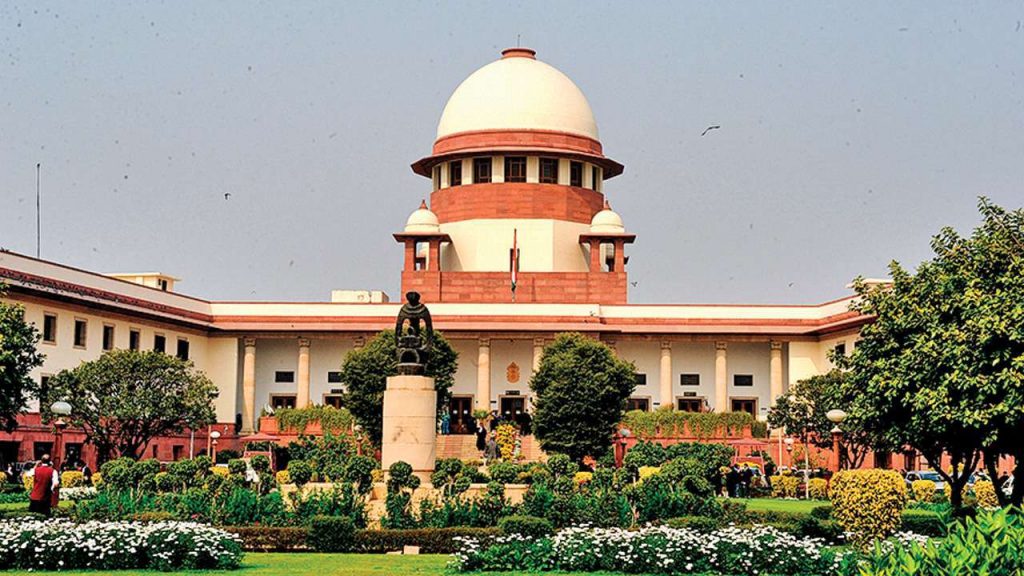New Delhi: The Supreme Court Monday flagged the issue of “pick and choose” by the Centre in clearing the collegium’s recommendations for transferring high court judges and said this does not send a good signal.
The court observed that of the 11 names of judges recommended by the collegium for transfer, five have been transferred but six are still pending — four from the Gujarat High Court and one each from the high courts of Allahabad and Delhi.
A bench of Justices Sanjay Kishan Kaul and Sudhanshu Dhulia said of the recently-recommended names for judgeship in high courts, eight have not been cleared and some of these judges are senior to those who have been appointed.
“As per my information, you have issued transfer orders for five judges. For six judges, you have not issued. Four of them are from Gujarat. Last time also, I had said this does not send a good signal,” Justice Kaul, who is also a member of the apex court collegium, told Attorney General R Venkataramani.
Asserting that this as not acceptable, the judge said, “Last time also, I did emphasise that don’t do selective transfers. It creates its own dynamics.”
Observing that the government is following a “pick and choose” policy regarding the names recommended by the collegium for transfers, the bench said, “Just look at it. What is the signal you are sending?”
The bench was hearing two petitions, including one alleging a delay on the Centre’s part in clearing the names recommended by the collegium for appointment and transfer of judges.
During the hearing, the top court said a problem arises when selective appointment takes place as people lose their seniority.
“Why will people agree to become judges?” it asked, adding, “This is something on which we had commented earlier that if a candidate does not know what seniority he would stand as a judge, it becomes difficult to persuade other eligible and deserving candidates.”
It also referred to some older recommendations made by the collegium and said it included names that have either been reiterated once or twice.
The bench observed that there cannot be a scenario where other names are stopped if the government does not clear one name from those recommended by the collegium.
It said three names were recommended in July where the expected timeline was over for the names to be sent back to the collegium with inputs.
Venkataramani said as far as the reiterated names are concerned, there has been progress.
He requested the bench to take up the matter after a week or 10 days and said several things are getting cleared.
The apex court posted the matter for further hearing December 5.
During the hearing, the bench referred to an issue concerning the Punjab and Haryana High Court and said two senior persons, whose names were recommended, have not been appointed yet.
It noted that of the remaining 11 names, where the judges had to be shifted from one court to another, five have been transferred, but six transfers are still pending.
The bench also recorded in its order that in the Gauhati High Court, the name of one of the senior candidates was not cleared at the first instance and the issue was taken up on a very serious note.
It said ultimately, the oath of others was delayed for some time to facilitate the government to issue the warrant of appointment for that person.
“We appreciate the stand taken in this behalf by the collegium and consequent action taken by the government,” the bench said.
It observed that the court is not shy in giving compliments, but it has to give a push where it is needed.
The bench said the issues that are being taken up are necessary for the system.
Hearing the matter November 7, the apex court had said it was “troublesome” that the Centre was selectively picking, choosing and appointing judges whose names were recommended by the collegium for appointment to the higher judiciary.
It had also expressed concern over the pendency of names recommended for transfer from one high court to another.
The appointment of judges through the collegium system has often become a major flashpoint between the Supreme Court and the Centre, with the mechanism drawing criticism from different quarters.
The top court is hearing the petitions, including one filed by the Advocates’ Association, Bengaluru, seeking contempt action against the Union Ministry of Law and Justice for allegedly not adhering to the timeline set by the court in a 2021 judgment.
One of the pleas has alleged “wilful disobedience” of the time frame laid down by the apex court in its April 20, 2021 order to facilitate a timely appointment of judges.
In that order, the court had said the Centre should appoint judges within three weeks if the collegium reiterates its recommendations unanimously.
PTI
